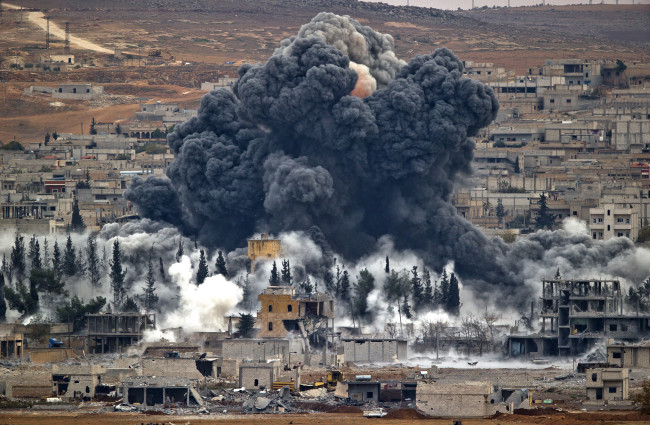
Five years of war have meant the beginning of a series of never ending conflicts. Several efforts poured into stabilizing the region, conferences, peace talks, and ceasefires but all in vain. It raises a crucial question whether the Middle East was ever stable?
There are several factors that not only destabilized the region, but to this day seem to annoy world leaders. Although it was unavoidable, the American-Soviet feud drastically divided the region, bringing unrest to many countries which had to choose sides in the making of the new world order. Meaning that even though the United States tried to cease Soviet expansion by creating NATO and uniting Europe, the USA still couldn’t guarantee that Soviet dominance wouldn’t spread south, forcing it to form alliances with unprecedented countries, such as Saudi Arabia, the UAE, and Qatar. Furthermore, it was a race against Soviet influence, especially in countries that would echo Soviet policy.
The Soviets, like their American counterparts, did appeal to some Arab states, such as Syria. Eventually, they formed solid coalitions that were crucial during the Arab-Israeli wars as well as problematic in the current Syrian conflict, which hasn’t been resolved by a resolution as the majority of resolutions have been vetoed by the same ally. Moreover, the birth of the state of Israel caused outrage but, surprisingly, it united Arab states in their desire to eradicate it. All these efforts and partnerships came to an end when it was inevitable that Arab states would have to acknowledge the state of Israel as a new player in the region, backed by a force to be reckoned with.
Few countries (for example Syria) remained adamant in their position towards what they perceived as the “illegitimate” state, while the new allies were facing changes in government that consequently produced leaders sympathetic to both Israel and the US. In the end, it was just a game, where interests certainly outweighed principles.
The Middle East is not only a key region when it comes to its political dominance, but it is also important in economic terms, because there are countries which contain some of the world’s biggest oil reserves. That wealth drew a lot of unwanted attention from countries that would stop at nothing to take part of it, as we have seen, for example, in Iraq. Furthermore, a lot of alliances were formed with countries that were unorthodox in the way they had handled politics, but the West turned the other cheek for the sake of the goldmine it was sitting on.
All in all, there are many interests at stake for the conflict to actually end. It is a never-ending cycle of supremacy in a region that has forgotten its principles and taken sides with the big players, which have been offering help in order to preserve their interests. The principles, which might have once been valued in the region, are long gone. The Middle East is a volatile region with an unpredictable future; however, it still remains a crucial and a tricky question in the world of foreign policy.
This article was originally published in the 2nd volume of the 22nd season of Chronicle Newspapers. [CZ]



